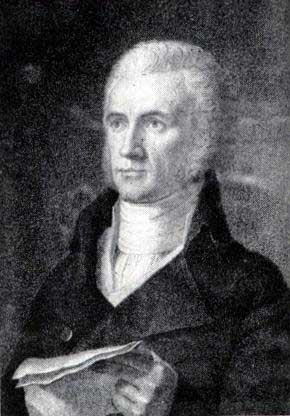Davie, William Richardson

Davie, William Richardson (1756-1820) Diplomat, Military Officer: Davie was born in England on June 20, 1756. He and his father came to North America in 1763, and young Davie was adopted by his uncle in South Carolina. After he serving with a group of volunteer patriot fighters around New York in the summer of 1776, he graduated from the College of New Jersey (later called Princeton). Davie began studying law in Salisbury, North Carolina, but was soon commissioned a lieutenant of a new company of dragoons. Rising to the rank of major in Pulaski's legion, he received a major wound in his thigh in 1779. After his recovery, he returned to the field, spending all of his inheritance to equip a cavalry. By the end of the Revolutionary War, Davie was a colonel. Settling in to a law practice, he served in the North Carolina legislature; and was a member of the Constitutional Convention, although he could not sign the Constitution because he had to go home due to illness. Davie was active in establishing the University of North Carolina, and helped influence the secession of Tennessee. After acting as commissioner to settle boundary disputes between North and South Carolina and serving as major-general of militia; he was elected governor of North Carolina in 1799. Before his term ended, President Madison sent him, with Oliver Ellsworth and William V. Murray, to France, where they eventually signed the Treaty of Paris on September 30, 1800, ending the "Quasi-War" between the United States and France. After his return, Davie unsuccessfully ran for Congress, then retired to his farm in South Carolina. He declined a commission as a major-general in the US Army because of his ill heath. Davie died on November 8, 1820, in Camden, South Carolina.
